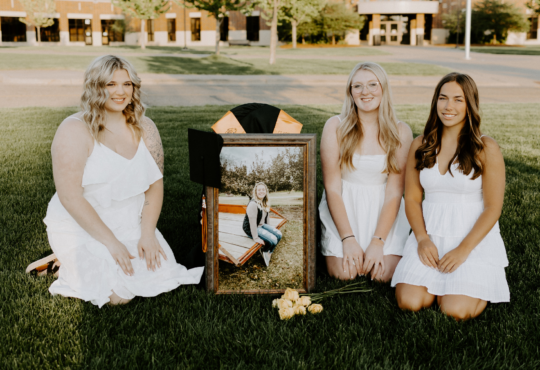
Brayson’s Incredible Journey: From Brain Tumor Survivor to NFL Equipment Manager and Mentor
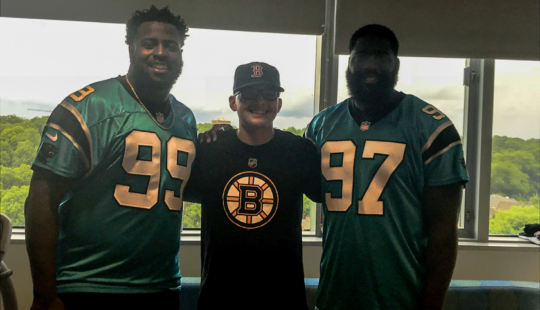
At 23, Brayson has overcome more than most people twice his age. Diagnosed with a medulloblastoma brain tumor at 16, Brayson faced a sudden and life-altering challenge in the midst of high school. Yet, instead of letting his diagnosis define him, he’s carved out a path that keeps him connected to one of his greatest passions: football.
A Sudden Diagnosis
Brayson’s story begins like that of many high school athletes: he was driven by a love for sports, particularly football and baseball. In his junior year, however, everything changed. What started as a persistent headache turned out to be far more serious. “It wasn’t gradual,” Brayson recalls. “It was this headache that just wouldn’t go away. I thought maybe it was a concussion from football, so I didn’t tell anyone other than my friends because I didn’t want to be benched.”
But the headaches worsened, and after one particularly bad night of vomiting, followed by vomiting at football practice the next day, Brayson’s coach urged him to see a doctor. A CT scan revealed devastating news: a brain tumor. “I’ll never forget the look on my doctor’s face when she told me,” Brayson remembers. “She’d been my doctor since I was a baby, so when she told me there was a tumor, it was really emotional.”
Brayson was immediately transported via ambulance from his doctor’s office in Shelby, NC, to a hospital in Charlotte, for surgery to remove the tumor. While the operation was successful, he suffered a cerebral stroke following the procedure. “The stroke was tough. I couldn’t walk, write, or even talk very well,” Brayson shares. “I spent a month in the hospital working to relearn everything.”
Recovery and Resilience
After the surgery, Brayson began the grueling process of post-operative treatment, which included six weeks of radiation, four rounds of high-dose chemotherapy, and four stem cell transplants. His immune system was compromised, so attending school in person wasn’t an option. But that didn’t stop him from trying to maintain a sense of normalcy. “I couldn’t go back to class, but I was allowed to attend baseball practice [because it was outside] as long as I stayed out of the locker room,” Brayson says. “My mindset was always that this was just a hiccup. I was determined to live as normally as possible.”
Staying Connected to Football
Before his diagnosis, Brayson had dreams of playing Division II or III football or baseball. “I thought I’d be playing in college,” he says. But after his diagnosis, it became clear that playing at a high level was no longer an option. That’s when he found a new way to stay connected to a sport he loved: as an equipment manager.
“My neighbor played football at Clemson, and he suggested I apply to be an equipment manager for the team,” Brayson says. “It sounded perfect, so after getting accepted to Clemson, I applied and I got the job. It was a great experience!”
His time at Clemson opened doors to new opportunities. After graduating, Brayson landed a position as a graduate assistant equipment manager at Texas Christian University (TCU). “This was another great job,” he explains. “The more I did it and gained responsibility, the more I realized how much I loved it. It was a job where I woke up excited to go to work every day.” Thanks to an introduction from his Clemson boss, “I was able to get connected to the equipment staff at the Jacksonville Jaguars, so now I’m working for the NFL. It’s been an awesome journey!”
Mentoring Other Survivors
In addition to working with the Jaguars, Brayson mentors other brain tumor survivors through the Pediatric Brain Tumor Foundation’s (PBTF) survivor group. At first, Brayson, who is now cancer-free, wasn’t sure he wanted to share his story. “For a long time, I kept it all to myself,” he admits. “But eventually, I realized I have a responsibility to help others.”
As a mentor, Brayson offers encouragement and support. “When I first joined the group, I didn’t need much counseling myself—I felt like I was in a good place. But I knew others could benefit from hearing my story and seeing that they can come out the other side,” he says. “I want to be someone they can reach out to and say, ‘This is happening to me,’ and I can respond, ‘Yeah, I’ve been there. You’ll get through it.’”
A Positive Outlook on Life
Brayson’s experience has shaped him into someone who embraces positivity and resilience. “There’s no point in being down about life. Why not make the best of it?” he reflects. “For me, it was always about getting through the challenges, then getting back to normal.”
While Brayson still faces some lingering effects from the stroke—writing is difficult, and his balance isn’t perfect—he doesn’t let those challenges hold him back. He’s focused on living his best life, whether that’s working for the Jaguars or supporting fellow survivors.
For Brayson, life is about finding ways to stay connected to what you love, even if the path looks different than expected. Football may have changed for him, but his passion for the game and his desire to help others have only grown stronger.
Related Stories

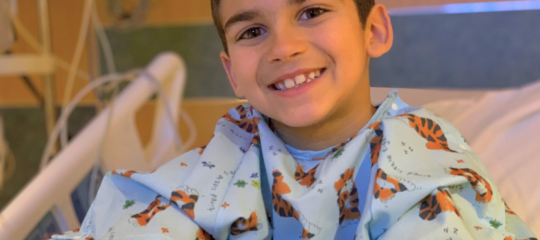
A Mother’s Intuition Leads to a Life-Saving Procedure
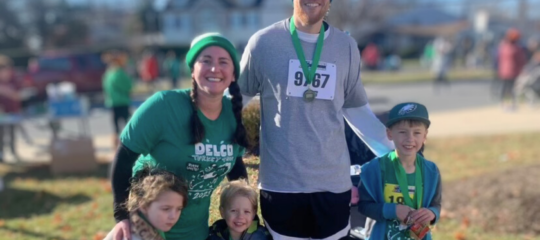
A Dad’s Advice Regarding Help: Say Yes to Everything!
Related Updates
Pediatric Brain Tumor Foundation Statement on the Reported NIH Grant Review Pause
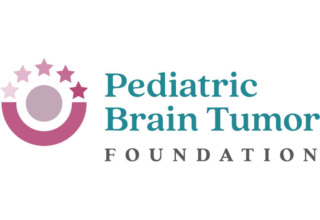
What Is a Shunt? A Parent’s Guide to Hydrocephalus Treatment in Pediatric Brain Tumor Patients
Hydrocephalus, commonly known as “water on the brain,” is a condition that can occur in children with brain tumors. It involves an accumulation of cerebrospinal fluid (CSF) that can cause increased pressure inside the skull, leading to various symptoms and complications.

